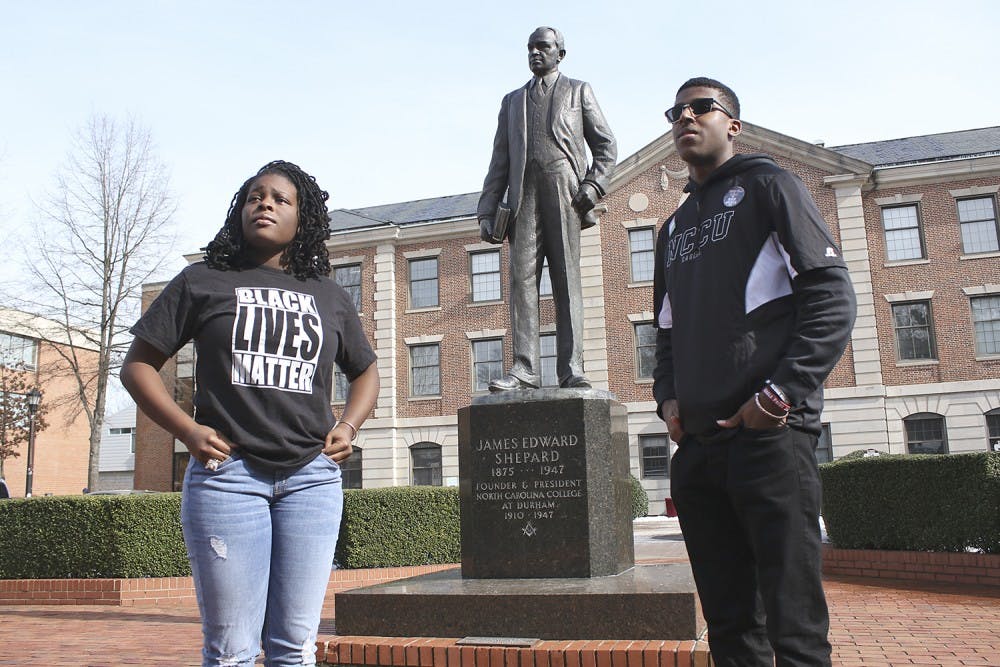Among UNC-system HBCUs, Fayetteville State University received the least funding per student in the 2013-14 school year with $9,300, while Elizabeth City State University received the most with $14,719. That’s still shy of UNC-Chapel Hill’s $16,365 per student.
“Not being able to have to have the same opportunities is disheartening,” Dillahunt-Holloway said. “It speaks to a systemic issue.”
Lack of preparation
Gasman said HBCUs can’t be held completely accountable for low graduation rates because their students’ backgrounds differ from those of students at predominantly white institutions.
“The majority of HBCU students are from underprepared backgrounds and grew up in areas that did not have access to high-quality K-12 education,” she said. “Many HBCUs are enrolling benefactors of Pell Grants and from lower income homes.”
Only 39.9 percent of African-Americans enrolled in universities nationwide graduate within six years, according to 2011 data from the National Center for Education Statistics. And at HBCUs, the graduation rate is slightly lower at 37 percent.
Gasman said this difference is because income status correlates with graduation rate.
Jenna Robinson, director of outreach for the Pope Center for Higher Education Policy, a conservative think-tank, said these low graduation rates also have to do with the admissions process of HBCUs.
“The HBCUs in North Carolina have lower academic standards in terms of the students they are accepting,” she said. “They accept students with lower GPAs and lower scores on standardized tests.”
While Gasman does not think that HBCUs guarantee success, she thinks they might be the right choice for many students.
“They create a place where someone can explore not only their blackness but the other dimensions of the life,” she said.
Keeping accreditation
To get the day's news and headlines in your inbox each morning, sign up for our email newsletters.
Despite legislator’s qualms, the state’s HBCUs maintain good accreditation status.
And Gasman said only eight of 105 HBCUs nationwide have low accreditation ratings.
The Southern Association of Colleges and Schools, which is in charge of accreditation for schools in North Carolina and nearby states, does not have specific requirements for graduation rates or loan default rates.
“We have very few specific thresholds because most of our accreditation standards tie to the individual institution’s mission,” said spokesperson Pamela Cravey. “We do huge schools and teeny tiny schools. If they are financially stable as a school, then they are financially stable against their own standards.”
Accreditation is renewed every 10 years, with a smaller midpoint review every five years. According to the association, all of North Carolina’s public HBCUs have been accredited since 1947.
“We see our goal as trying to help (schools) stay accredited,” said Cravey. “But we do ask a lot.”
Shifting demographics
Robinson said historically black colleges are seeking out other demographics.
“Just like other universities, they have to be more competitive,” she said. “In order to keep enrollments up, it’s important that they recruit non-black students because black students are going to non-HBCU schools.”
Gasman said HBCUs are 13 percent white, 2 percent Asian and 3 percent Latino.The faculty is also diverse, with 40 percent being non-black.
But HBCUs maintain a crucial role representing minorities.
“They tend to advocate for the people in the communities,” Gasman said. “Presidents of HBCUs often take on national issues that involve African-Americans.”
Dillahunt-Holloway said he expects there to be a lot of changes with HBCUs in the next few years — changes that have motivated him to join activist groups.
“I thought it would be a good time to get involved,” Dillahunt-Holloway said.
Raven Cheatham, a first-year at N.C. Central, who works with Dillahunt-Holloway through the Black Lives Matter movement, said she didn’t let low graduation rates deter her from applying to N.C. Central.
“I was pretty determined,” she said. “I had my mind set.”
state@dailytarheel.com




